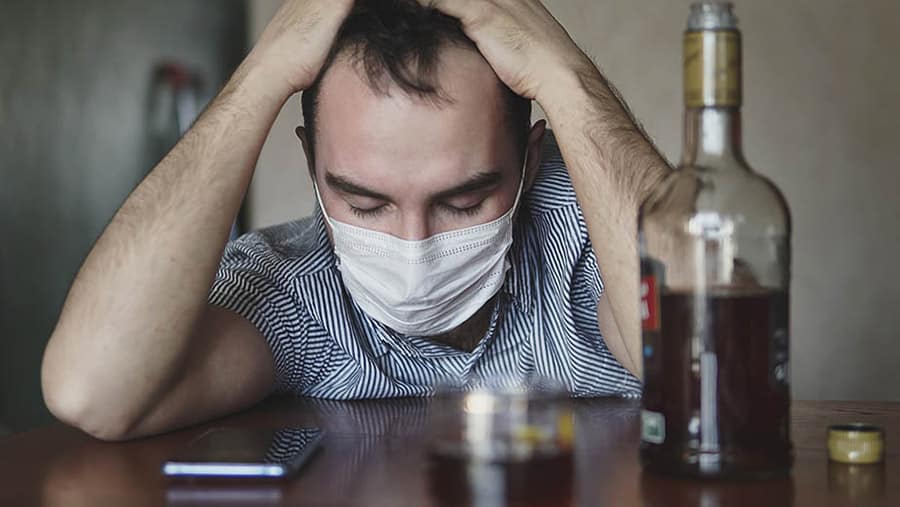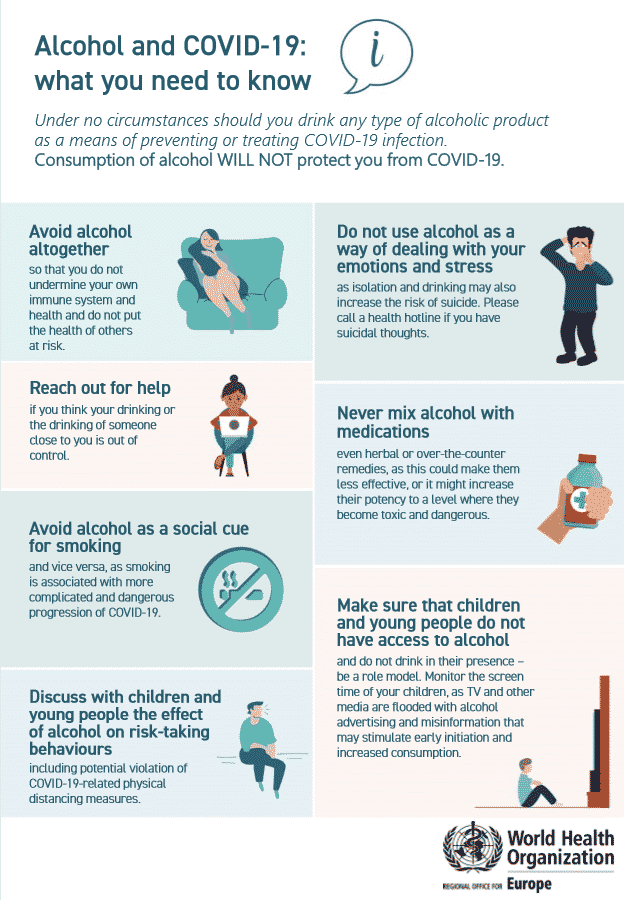Alcoholism, Binge Drinking, and Loneliness in Covid Lockdown
Alcoholism plagues many individuals and families across America. In 2019, according to a national survey, 14.1 million adults ages 18 and older had an alcohol use disorder (AUD). (1) Having an AUD means you have a hard time controlling your drinking or stopping entirely, despite negative familial, work, and social consequences. Alcoholism is one of the highest preventable causes of death, and many people a year attend treatment to combat their addiction. It’s common for a nation to increase their drinking during a national time of stress, like our current situation with the pandemic. Therefore it’s not surprising that alcoholism during and binge drinking during the pandemic is an extreme worry.
With an airborne illness in the air, we are forced to stay home, isolate, and put a halt to our regular lives. Some people experience Covid lockdown loneliness, leading to a slew of mental health problems such as depression, anxiety, and increased stress. To deal with these mental problems, some turn to binge drinking during Covid, which then turns into alcoholism during Covid. But what makes alcoholism during Covid more dangerous than other national pandemics? Why is binge drinking during Covid a dangerous situation, and how can you combat Covid lockdown loneliness?

Alcoholism During Covid
People use alcohol for a variety of reasons; some treat it as merely a way to socialize at a bar, stopping after a couple of drinks. Some find camaraderie in going to events together, such as sporting events, concerts, or parties and enjoying the effects of alcohol, but find they don’t experience blackouts, don’t drink and drive, and can maintain healthy relationships with their friends, partners, and co-workers after these gatherings. But then there are the drinkers, or alcoholics, who suffer from an AUD, a brain disorder in which one cannot stop drinking even if it is explicitly detrimental to their lives. These individuals find they have to drink daily or when they do drink, must keep drinking to the point of incomprehensible intoxication, usually ending in a messy situation. Usually, alcoholics drink like this because they are dealing with extreme trauma, depression, anxiety, or self-hatred.
Regardless of why they drink, alcoholism is a disease that can be fatal to the alcoholic and very damaging to those closest to them. During a national pandemic, it is an even scarier thing to deal with, and can work against you in worse ways. Alcoholism during Covid blend together like a poisonous cocktail; it might seem like the normal, natural thing to do to indulge in something like drinking during a time of uncertainty that the Covid-19 virus bring us. We are all very nervous about the losses that can come via jobs, loved ones, finances, travel plans, and social events. We are also forced to stay home in order to help derail the spread of the virus, but in turn we are experiencing Covid lockdown loneliness, raising the levels of depression, anxiety, and stress. So, people need something to get through this all, thus drinking during covid seems like a good idea.
Check Your Insurance Coverage for FREE
Find out if your insurance covers addiction treatment in minutes. We accept most insurance!
However, this can turn to catching alcoholism during the Covid crisis, which is more dangerous because of the limited access that alcoholics have to resources such as in-person group-meetings, rehabs, and therapies due to lockdown orders and government restrictions. Alcoholism during Covid is dangerous physically as well because alcoholism weakens the immune system, making the drinker more susceptible to catch the virus, and making it harder for the drinker to deal with symptoms of Covid-19.
Binge Drinking During Covid
Maybe you aren’t necessarily an alcoholic, so you think catching alcoholism during Covid isn’t something you need to worry about. Well, just because you aren’t an alcoholic, but if you are finding yourself binge drinking during Covid, then you still have cause of concern. Binge drinking during Covid has seen a significant increase since pre-pandemic times. According to data published in The American Journal of Drug and Alcohol Abuse, out of a total of 1,982 individuals who responded to the survey, 32.2% reported drinking more alcohol during the pandemic than compared to before the pandemic. (2) Binge drinking is already a serious cause for concern; people under the influence of large amounts of alcohol will act irrationally, making poor decisions, and will lose control of verbal and motor skills.

They are more prone to serious injury, and for people who are binge drinking during Covid and alone, they can find themselves in a situation where there is no one to help them if they are seriously hurt or need medical attention. It may seem fun to drink to the point of extreme intoxication to lessen the stresses you are going through, but, according to the National Institute on Alcohol Abuse and Alcoholism, “although alcohol temporarily dampens the brain and body’s response to stress, feelings of stress and anxiety not only return, but worsen, once the alcohol wears off. Over time, excessive alcohol consumption can cause adaptations in the brain that intensify the stress response. As a result, drinking alcohol to cope can make problems worse and one may end up drinking to fix the problem that alcohol caused.” (3) So, binge drinking during Covid should not be considered when having to deal with the symptoms of the Covid-19 virus, or the mental anguish of Covid lockdown loneliness. But how can we deal with these problems in healthy, productive ways?
Covid Lockdown Loneliness
Covid lockdown loneliness is a very real thing, and it can manifest in dangerous ways, such as turning to binge drinking during Covid. But there are safe and positive activities to do during Covid. Mass.gov has several ways to combat Covid lockdown loneliness and find contentment and even joy during these harsh times:
- Check in with loved ones: Call a neighbor or friend to check in on how they are doing. Send a text or note to friends and loved ones. Writing has been shown to help people feel less sad or upset.
- Lend a helping hand: If you are healthy, offer to run an errand for a neighbor who may need a little extra help. Helping others can help us feel connected and gives us a sense of purpose during this difficult time.
- Go for a walk: Simply getting outside for some fresh air and waving or greeting others from a safe distance can make a huge difference. (4)
Reach out to Hotel California by the Sea
We specialize in treating addiction and other co-occurring disorders, such as PTSD. Our Admissions specialists are available to walk you through the best options for treating your addiction.
References:
- Alcohol use disorder – Symptoms and causes – Mayo Clinic
- Binge Drinking in US Adults Linked With Isolation During the COVID-19 Pandemic – Psychiatry Advisor
- Director’s Blog: Alcohol poses different challenges during the COVID-19 pandemic | National Institute on Alcohol Abuse and Alcoholism (NIAAA) (nih.gov)
- Managing isolation and loneliness during COVID-19 | Mass.gov
